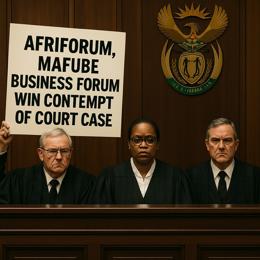Image created by AI
Pakistani Man Charged with Cyber-Terrorism for Inciting UK Riots with Fake News
The dissemination of fake news has taken a dangerous turn as Farhan Asif, a Pakistani national, has been brought before a Lahore district court on charges of cyber-terrorism. Asif, a 31-year-old software engineer, is the founder of the website Channel3Now. He allegedly published a fabricated story which incited anti-immigration riots in several towns and cities across the United Kingdom.
The misinformation campaign began following a tragic knife attack at a children’s event in Southport where three young girls lost their lives. The accused, Axel Rudakubana, was a UK national with Rwandan heritage. However, within hours of this horrifying incident, Asif’s website falsely implicated a Muslim asylum seeker, sparking widespread outrage and violent unrest.
The riots, which saw mosques and asylum seeker accommodations targeted, were partly fueled by the viral spread of Asif's article on social media platforms. Far-right groups latched on to the false narrative, escalating the situation further. The UK authorities were swift to associate these riots with the spread of misinformation online, criticizing irresponsible use of freedom of speech to incite violence.
Notably, Asif was remanded for only one day, highlighting the complex and nuanced issue of balancing free speech with the need for civic responsibility and law and order on digital platforms.
Investigations have pointed to a clickbait motive behind Asif's actions, emphasizing the dangers associated with increasing ad-revenue at any social cost. Marc Owen Jones, a Middle Eastern studies associate professor, underscored the ramifications, mentioning the tens of millions of social media impressions of posts erroneously claiming the attacker was Muslim.
Furthermore, celebrities like Andrew Tate were found amplifying these unverified claims, exacerbating the spread of the false narrative. This incident sheds light on a larger, global concern regarding rampant online misinformation and its power to affect real-world consequences.
The story also touches on the larger context of free speech concerns and government censorship in the UK. Recent actions by the UK government have sparked a debate on the balance between combating fake news and encroaching on citizens' rights to express opinions openly. Comparisons with censorship in other countries, including authoritarian regimes, suggest a need for a public discourse on the matter.










